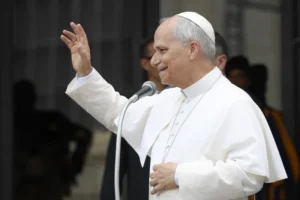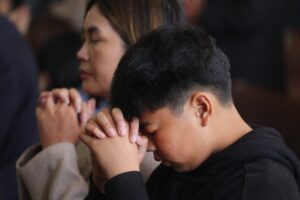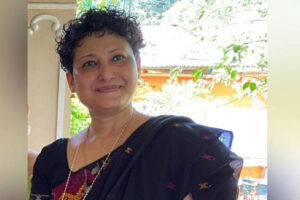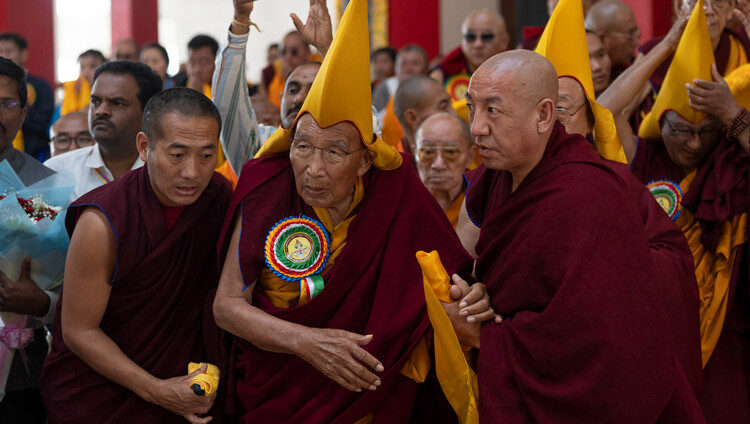On an unusually chilly day by Lake Ohrid in North Macedonia, a mother begins the familiar climb up the stone path toward the hill-top of the Church of Saint John the Theologian at Kaneo. The wind bites through her headscarf, her leggings, and she wonders why she trudged this route when prayer at home required no journey. Yet something inside her says she must come.
She had stopped going long ago, choosing to stay at home when she was caring for her mother-in-law. Nobody asked why she vanished from the weekly gatherings, nor visited to invite her back. Her friends, who preferred to laugh and chat in homes or cafés instead of attending the services, never remarked when she said she would no longer make the trip from Opënica. They moved on.
Now, the urge to return is not born of loneliness—but of the recognition that something meaningful has been missing. Attending the service offers an option, a reason to walk beyond the familiar walls of home.
Her legs ache. She’s no longer accustomed to the distance from the drop-off point to the church-hill. The cobbles press underfoot, irritating old corns, and she’s winded from the repeated climbs. The sky is overcast, the lake’s expanse shrouded in mist; the day too cold for August. Trees around her appear to wilt, their leaves curling in the cold, the veins in her hands throbbing from the chill.
Along the path she passes faces she recognises—people she knew decades ago, some slowly walking ahead, others clustered taking photos of the lake or trees. They dress mostly in black like she does. They offer polite smiles of recognition, but not a word of “How long it’s been? Why weren’t you here?” To them, she is as much an outsider as ever, despite having come weekly for years.
She greets no one, walks past the arch that welcomes visitors into the church complex, and ascends the steps. Her vantage aligns with the lake’s waves and the entrance before her. The bricks of the church appear faded, shape worn—but the overall architecture, the familiar Orthodox design she once visited so many times, remains unchanged. Only the people differ. One priest she once knew is gone — the one she confided in about her son’s decision to identify as gay — reportedly kidnapped and never returned. She misses him and feels a measure of disappointment.
Why did she come? She knows the divine resides within her home as much as anywhere. She prefers solitude, and there is no one in the crowd she particularly likes. The looks from women of her generation — unchanged — feel more like judgment than welcome. She could leave, and go unnoticed.
Yet she remains, drawn by habit and belonging. The body remembers what the mind may waver on. Inside the church, she senses the scent of melting candles and incense. The cool emanating from the stone, the gilded icons of Christ on the walls—they all bid her to lift her gaze and remember that one thing alone matters: the divine.
She closes her eyes though the service hasn’t yet begun. The familiar hymns drift through her memory, soothing in their repetition. The emotion wells up—not from the people, but from this space itself. A tear comes. She wipes it away. Others may be watching, but she pays no mind. This is her right.
This is her church. This is her faith. Born into it, she comes here time and again for a reason. That reason has nothing to do with others. She doesn’t need to be like those around her to claim this belonging. She may pray elsewhere, but she also has the right to inhabit this place, because she belongs. New people arrive, old ones depart, but she is not responsible for them.
As the liturgy begins, she stands still — her gaze cast humbly downwards — and in that moment she understands: the journey, the pain, the returns—they all matter because this place matters.















